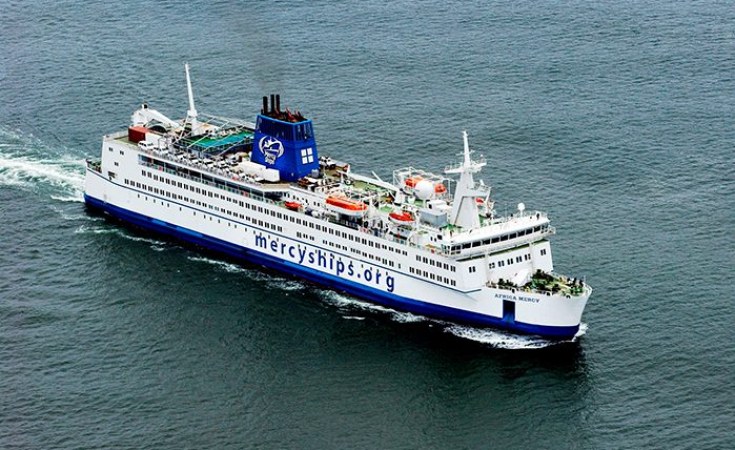- and the Operating Rooms Where the surgeon Dr. Leo Cheng is helping patients in need
Dr. Leo Cheng, a maxillofacial reconstructive surgeon with the UK National Health Service, spends two to three weeks of his leave each year volunteering on board the Africa Mercy, the world's largest charitable floating hospital run by international charity Mercy Ships. His patients suffer from large benign tumours on the face and neck. Many of them have never received any kind of healthcare before they meet him.
Earlier this year, Dr. Cheng joined the Africa Mercy to travel to Tamatave in Madagascar, where more than 90% of the population live on less than a dollar a day. For every 10,000 residents, there are only two physicians and three hospital beds available.
The Africa Mercy has five state-of-the-art operating rooms and advanced equipment to help make fast and accurate diagnoses. Dr. Cheng and the ship's team are always on the lookout for new methods and technologies that can improve the work they do while aboard.
"Ahead of this latest journey, I initially inquired about a laptop-style ultrasound machine. Once I found out about the Vscan with Dual Probe, I immediately felt that I must introduce this to the ship clinicians," Dr. Cheng said.
Equipped with GE Healthcare's Vscan™ with Dual Probe – a pocket-sized ultrasound that allows easy visualisation of internal organs – Dr. Cheng and the other clinicians on board were able to reduce patient waiting times and referrals thanks to the ultrasound's ability to quickly obtain high quality images. The Vscan™ with Dual Probe was also recently used in rural parts of Africa where distances between hospitals can make accessing medical care difficult.
"The Vscan with Dual Probe can be used in clinical situations without the need of connecting it to a main electricity supply," Dr. Cheng commented. "On the Africa Mercy, we used it for intravenous access, scanning lumps on the face, and to help us identify exactly where to inject a nerve block. Without this type of equipment, clinicians like us would not be able to do this safely."
"It was particularly helpful when our conventional laptop-style ultrasound machines were not available and it allowed us to diagnose vascular lesions and to ensure accurate instrumentation without unpredictable complications," Dr. Cheng said.
Once a patient has been diagnosed, the Mercy Ships team can proceed with treatment. Dr. Cheng performs about two to three operations a day but he finds that for many of his patients, the journey towards healing begins by offering human contact and acceptance, which sometimes starts with a simple handshake. Many of Dr. Cheng's patients have been shunned by their families and by society because of their deformities.
"So many of the patients I meet on board are trapped behind their facial tumours and from my experience, the healing process begins when you show them a bit of human contact and acceptance. Seeing the tremendous joy and happiness that overcomes the patient once their tumour or deformity is removed is such a special moment to witness," Dr. Cheng added.
One of Dr. Cheng's patients suffered from a large benign jaw tumour which had been slowly growing for six or seven years. Being benign, it had not spread to other parts of the body but had grown so large that it was covering most of his face.
When he met Dr. Cheng, he was living in a cattle shed because he had been rejected by his family for his facial deformity. Some of the villagers had even thrown stones at him when he visited public spaces because they believed his large facial tumour meant he was cursed.
Dr. Cheng was able to successfully remove the tumour and reconstruct the patient's jaw using titanium metal plate. After the surgery, the patient looked at himself in the mirror and could not believe what he was seeing. "That's not me," he said.
Dr. Cheng will join the team of volunteers on the Africa Mercy again next year to travel to Cotonou, Benin, West Africa.


